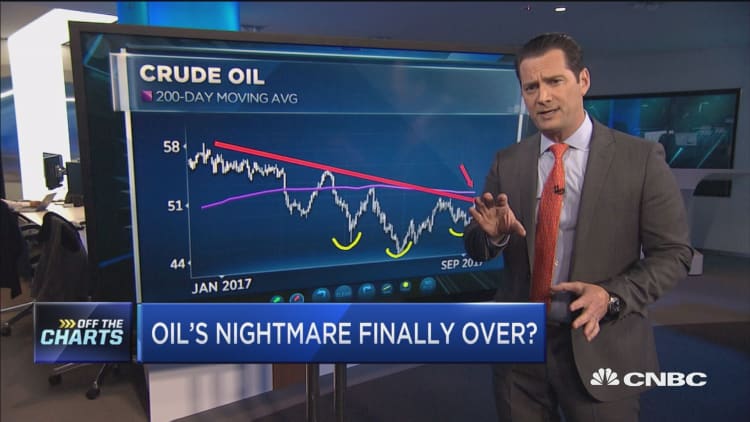Oil futures eased on Thursday on a slightly bigger-than expected U.S. crude inventory build as the restart of U.S. refiners after Hurricane Harvey was being countered by the threat of Hurricane Irma.
The U.S. Energy Information Administration said U.S. weekly crude stocks increased 4.6 million barrels last week, topping analysts' forecast of a 4.0-million barrel build in a Reuters poll.
Reflecting the impact of Harvey which hit the Gulf Coast on Aug. 25, the EIA said U.S. oil refinery utilization rates slumped 16.9 percentage points to 79.7 percent last week, the lowest rate since 2010.
U.S. Gulf Coast utilization rates dropped to 63.4 percent, the lowest rates since the EIA began collecting the data in 2010.
"Refinery runs were cut as the storm approached; I expect this trend will continue in next weeks stats which will reflect the full storm impact on Texas Gulf Coast refining," said Andrew Lipow, president of Lipow Oil Associates in Houston.
U.S. West Texas Intermediate settled down 7 cents, or 0.14 percent, at $49.09 per barrel.

U.S. Gulf Coast facilities were slowly recovering from the devastating effects of Harvey, which hammered Louisiana and Texas almost two weeks ago, shutting key infrastructure in the heart of the U.S. oil and natural gas industry.
As of Wednesday, about 3.8 million barrels of daily refining capacity, or 20 percent of the U.S. total, was shut in, though a number of refineries and petroleum-handling ports were restarting.
U.S. refiner Valero's five refineries located on the Texas Gulf Coast are in the process of ramping back up, Chief Executive officer Joe Gorder said on Thursday.
At the same time, prices were weighed down by fears that Hurricane Irma in the Caribbean could interrupt crude shipments in and out of the United States.
In the week after Harvey hit, U.S. crude exports dropped 749,000 barrels per day to 153,000 bpd.
Irma hit Caribbean islands overnight with wind speeds up to 185 miles per hour and was heading for Florida, where fuel shortages were reported as retailers struggled to keep up with demand from customers filling tanks ahead of the storm's landfall, expected this weekend.
Another Atlantic storm, Jose, is following on Irma's heels and is expected to gain in strength and intensify into a major hurricane by Friday, according to the U.S. National Hurricane Center. Yet another hurricane, Katia, is in the Gulf of Mexico.
"Demand may continue to be distorted as multiple hurricanes make their way across the Caribbean," said Jeffrey Halley, senior market analyst at futures brokerage OANDA.

